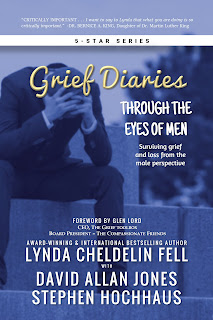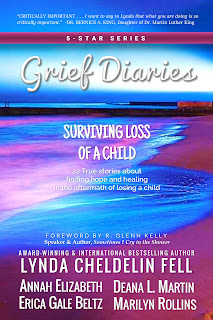No one ever sets out to maim or kill when they make a choice to get behind the wheel while drunk, but that’s the thing about alcohol—it impairs our judgment. Partygoers who are too intoxicated to make the call for a taxi or Uber somehow escape the watchful eye of friends, bartenders, and store clerks.
Consider the case of Brandon Thomas. The 17-year-old student was on his way home in December 2012 when a 22-year-old drunk driver drove north in the southbound lane of Highway 22 south of Calgary. By the time Brandon saw the drunk driver in his lane, he had no time to react and was hit head-on. The 22-year-old, who had no prior run-ins with the law, was arrested at the scene and then released while Brandon went to the morgue.
On a busy stretch of freeway at rush hour, how did the drunk driver, who struck two other vehicles in his three-quarter ton truck before killing Brandon, get so far on the road?
That’s the thing about drunk driving—because of the myths that continue to surround alcohol, partygoers and their friends can easily fall victim to common deceptions. Because of the destruction left in the wake of those who succumb to the effects before planning ahead, the cost to our society is dear. With New Year’s Eve upon us, one of the deadliest weekends of the year, dispelling the myths that continue to surround drunk driving bear repeating—because the life saved may be your own.
Myth #1: Drunk driving is just an accident.
It’s not an accident when a person makes a decision to drive drunk, distracted, or in a negligent manner. It’s a crash that is fully avoidable. In a time when Uber and Lyft are just a finger swipe away, partygoers who fail to plan ahead really have no excuse to overlook responsibility. “It is a conscious choice resulting in a preventable tragedy,” says Bill Downs, president of the nonprofit organization AVIDD, and a father who lost three kids to a drunk driver in 2007.
Myth #2: Alcohol affects only seasoned drunks and young adults.
That’s another thing about alcohol—you don’t have to be a drunk to be drunk. It impairs the judgment of everyone, not just alcoholics and young 20-something males. Consider the case of Janakae Sargent. One night in November 2006, the 20-year-old Texas Tech University was easing into an intersection in the same moment a 48-year-old female ran a red light in excess of 100 mph, striking Janakae’s pickup. She died four days later from her injuries. The drunk driven had a blood alcohol content of 0.25 percent. Janakae had nothing in her system; not even an aspirin.
That’s another thing about alcohol—you don’t have to be a drunk to be drunk. It impairs the judgment of everyone, not just alcoholics and young 20-something males. Consider the case of Janakae Sargent. One night in November 2006, the 20-year-old Texas Tech University was easing into an intersection in the same moment a 48-year-old female ran a red light in excess of 100 mph, striking Janakae’s pickup. She died four days later from her injuries. The drunk driven had a blood alcohol content of 0.25 percent. Janakae had nothing in her system; not even an aspirin.
Myth #3: Intoxicated people look obviously intoxicated
Not all intoxicated partiers look drunk as they get behind the wheel of a car. Short-term effects of alcohol begin with relaxation and reduced inhibitions, which is what makes alcohol so tempting. In an effort to keep the buzz going, partygoers continue the alcohol. As the blood-alcohol content increases, brain activity slows down. Concentration begins to dive, and reflex and response time become dangerously slow. All the while, the drinker’s outward appearance looks deceptively fine. This is how they escape the watchful eye of friends, bartenders and store clerks.
Not all intoxicated partiers look drunk as they get behind the wheel of a car. Short-term effects of alcohol begin with relaxation and reduced inhibitions, which is what makes alcohol so tempting. In an effort to keep the buzz going, partygoers continue the alcohol. As the blood-alcohol content increases, brain activity slows down. Concentration begins to dive, and reflex and response time become dangerously slow. All the while, the drinker’s outward appearance looks deceptively fine. This is how they escape the watchful eye of friends, bartenders and store clerks.
Myth #4: Coffee or cold air will sober up the drinker
The only way to get sober is to allow the body time to metabolize the alcohol. On average, it takes approximately 2 hours to metabolize 4 ounces of wine, 12 ounces of beer, or 1.5 ounces of distilled spirit. Simply put, there is no magical shortcut to sober up. Until then, your brain remains under the influence.
The only way to get sober is to allow the body time to metabolize the alcohol. On average, it takes approximately 2 hours to metabolize 4 ounces of wine, 12 ounces of beer, or 1.5 ounces of distilled spirit. Simply put, there is no magical shortcut to sober up. Until then, your brain remains under the influence.
Myth #5: A DUI can be resolved in under a couple of years
Sure, the drunk driver faces charges and court time but in instances of vehicular homicide caused by drunk drivers, these offenders rarely receive a life sentence in prison. The victim who is injured, or the family left behind when a life is lost, is handed a life sentence of grief and pain.
Sure, the drunk driver faces charges and court time but in instances of vehicular homicide caused by drunk drivers, these offenders rarely receive a life sentence in prison. The victim who is injured, or the family left behind when a life is lost, is handed a life sentence of grief and pain.
We all want to enjoy the final holiday of the year. Dressing up, cutting loose, and letting our hair down with friends is tradition for many. But if you haven’t yet planned ahead for the safety of yourself and others, I’ll leave you with the following poem. Written by Janakae Sargent at the tender age of 13, her mother found it after her daughter’s death—7 years later. Eerily describing the crash, Janakae had titled it “Life.”
LIFE - By Janakae Sargent
I went to a party where they were serving beer
I didn’t drink once that night because the results I fear
I know the effects of drunk driving now more so than ever
The choices some people make just aren’t very clever
I was leaving the party so I would be home by curfew
I saw headlights on the wrong side of the road
The other driver didn’t have a clue
That he was about to hit me, there wasn’t anything I could do
Now I’m in a hospital where everything is new
The other driver sent a card; I hear he’ll be all right
The doctors told me he didn’t need to stay the night
They also said I’m paralyzed from the waist down
That’s the thing about doctors; they don’t mess around
I’m lying in a bed that isn’t mine, and I have a few questions to ask
My future’s uncertain, my present dark,
and I don’t wish to speak of the past
I didn’t drink and drive, and I wouldn’t let my friends.
So why am I to be the one who will never walk again?
LIFE - By Janakae Sargent
I went to a party where they were serving beer
I didn’t drink once that night because the results I fear
I know the effects of drunk driving now more so than ever
The choices some people make just aren’t very clever
I was leaving the party so I would be home by curfew
I saw headlights on the wrong side of the road
The other driver didn’t have a clue
That he was about to hit me, there wasn’t anything I could do
Now I’m in a hospital where everything is new
The other driver sent a card; I hear he’ll be all right
The doctors told me he didn’t need to stay the night
They also said I’m paralyzed from the waist down
That’s the thing about doctors; they don’t mess around
I’m lying in a bed that isn’t mine, and I have a few questions to ask
My future’s uncertain, my present dark,
and I don’t wish to speak of the past
I didn’t drink and drive, and I wouldn’t let my friends.
So why am I to be the one who will never walk again?
_____
Lynda Cheldelin Fell is the
award-winning author of Grief Diaries: Surviving Loss by Impaired Driving, one title in her 5-star series dedicated to raising
awareness on relevant issues. Learn more at www.LyndaFell.com.




































